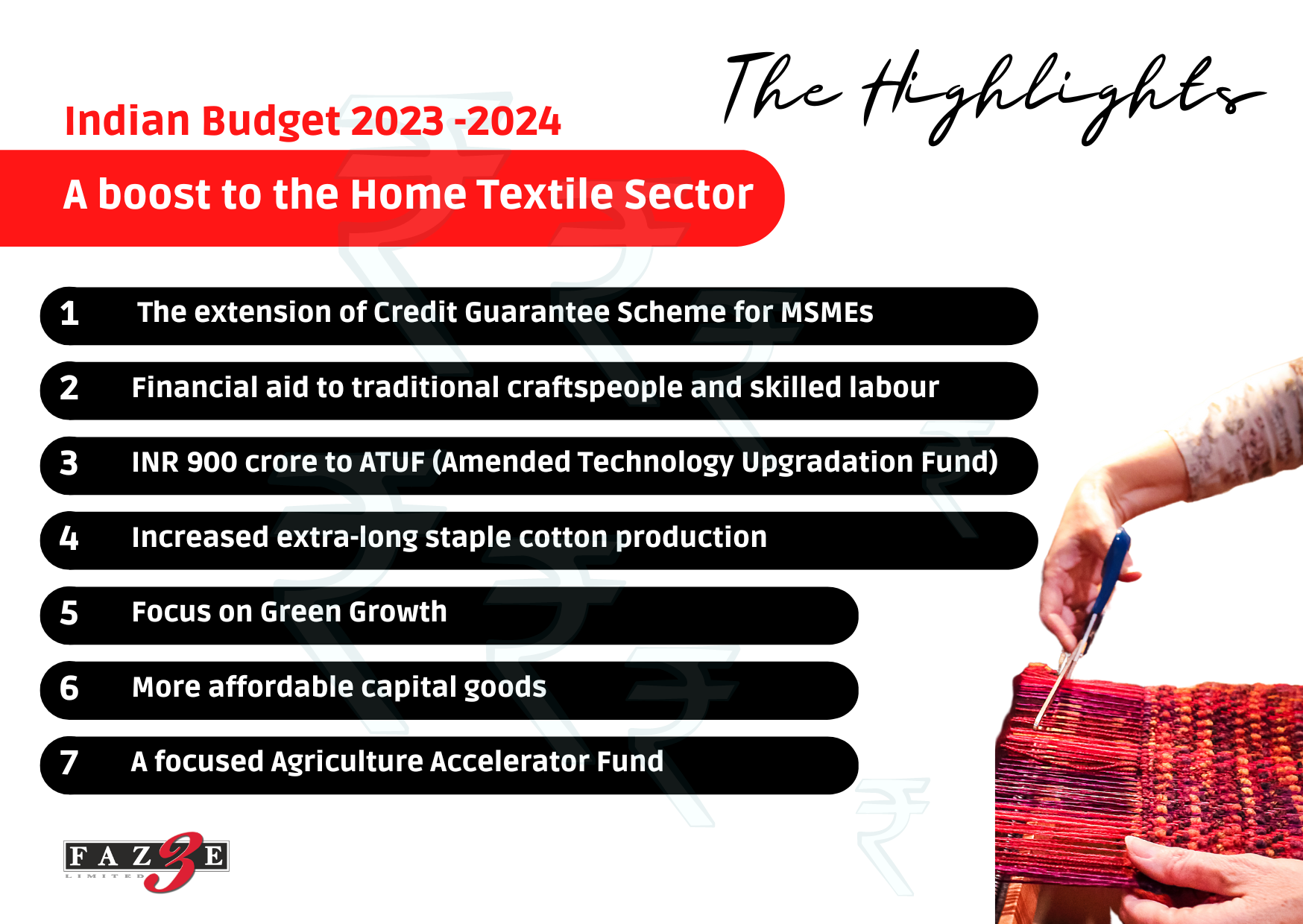
Faze 3 Budget Highlights
Faze 3 is focused on generating jobs and exporting high quality and competitively priced home apparels and home textiles in the global market. The new budget adds momentum to our vision of being one of the best in the industry. Some of its noteworthy highlights include a boost of capital to the Ministry of Home Textiles and a focus on funding.
The budget was presented with a focus on:
Inclusive Development: Sabka Saath Sabka Vikas
Reaching the Last Mile
Infrastructure & Investment
Unleashing the Potential
Green Growth
Youth Power
A boost to the Financial Sector
The seven priorities creatively termed as “Saptarishi” for the Fiscal Year ahead, will be responsible for general economic growth, providing more buying power and better education to the Indian diaspora.
The Budget has indicated policies and plans to promote skill development and better schemes for education, which in turn will help the sector welcome more skilled labour into the fold.
This has included, for the first time, a focus on the traditional craftspeople. Referred to as Vishwakarma, they will benefit from upskilling, tech training and more financial aid, boosting their presence within the home apparel sector.
Better jobs and more spending capacity coupled with affordable capital goods will enhance the sector’s ability to generate more productionwise.
The focus on Green Growth and the subsidies and policies aimed at a more eco-friendly environment support the Faze 3 approach to environmental protection.
We are grateful for the INR 900 crore, a 50% increment, allocated to the ATUF (Amended Technology Upgradation Fund) scheme and the extension of the Credit Guarantee Scheme for MSMEs. From 1 April 2023, the INR 9,000 crore infusion and collateral for INR 2 lakh crore loans will boost confidence and help the home apparel industry increase its capacity to a great extent.
Budget 23-24 has focused on the issues of extra-long staple cotton that have been plaguing the country and has found solutions. New schemes with a focus on Aatmanirbhar Bharat will increase production from 5 lakh bales to over 20 lakh bales within the country and dramatically reduce our dependence on imports.
A focus on public-private partnerships, cluster based, and value chain approaches will forge a better relationship between farmers, state and manufacturers, making production seamless and more viable for everyone.
We look forward to the Agriculture Accelerator Fund as well. It promises to encourage technological enhancements and bold innovation in the production of raw materials needed by the home apparel industry.
Overall, the allocated budget for the Ministry of Textiles has been increased by INR 1,000 crore, setting it at INR 4,389 crore for the new fiscal year.